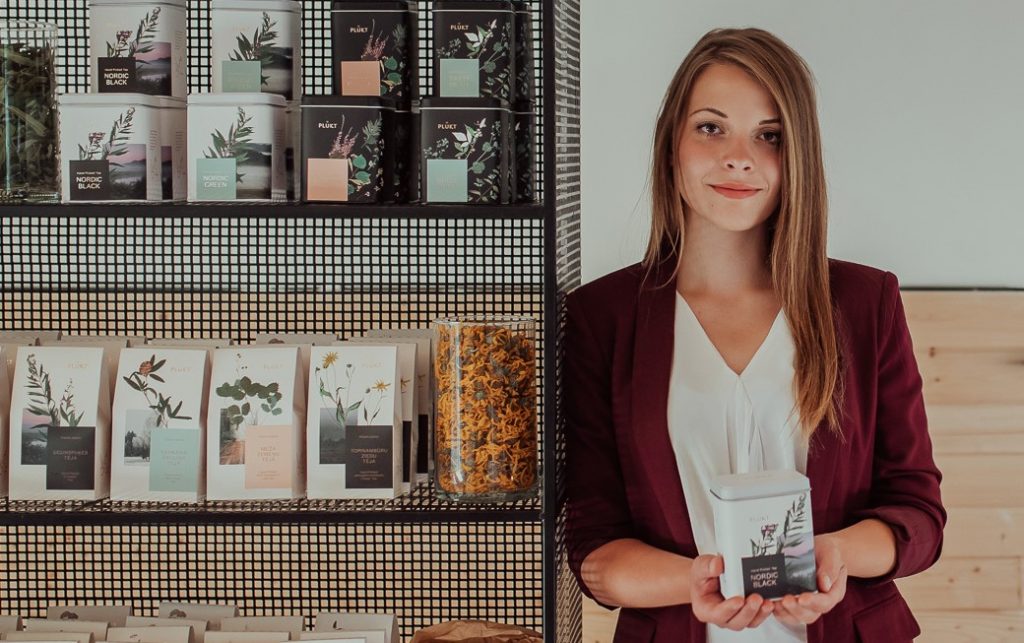Māra Lieplapa: Generating value in rural areas from wild herbs
Freshly graduated from university, in 2018, Māra Lieplapa founded PLŪKT, a company producing teas from herbs hand-picked from the Latvian nature. “There are some 1300 varieties of herbs in Latvia that are good for human consumption, yet, only few of these are actually used”. Making a product with a positive impact on the environment and the local area of Madona, was Māra’s drive to start her own business.

By Alberto Giacometti, Nordregio
PLŪKT offers a variety of teas from hand-picked herbs naturally growing in meadows, grasslands and forests of Latvia. The selection includes two lines of products, loose tea, where you can see the flowers and leaves, and teabags. “The teabags are biodegradable and decompose within 30 to 60 days”.
Māra has a long family knowledge using herbs for traditional medicine among other applications such as improving wellbeing in general and sustaining a healthy lifestyle. Using her mother’s extensive experience with herbs and environmental sciences and a scientific base, Māra and team selected 15 types of herbs, from some 1300 varieties found in the Latvian wilderness.
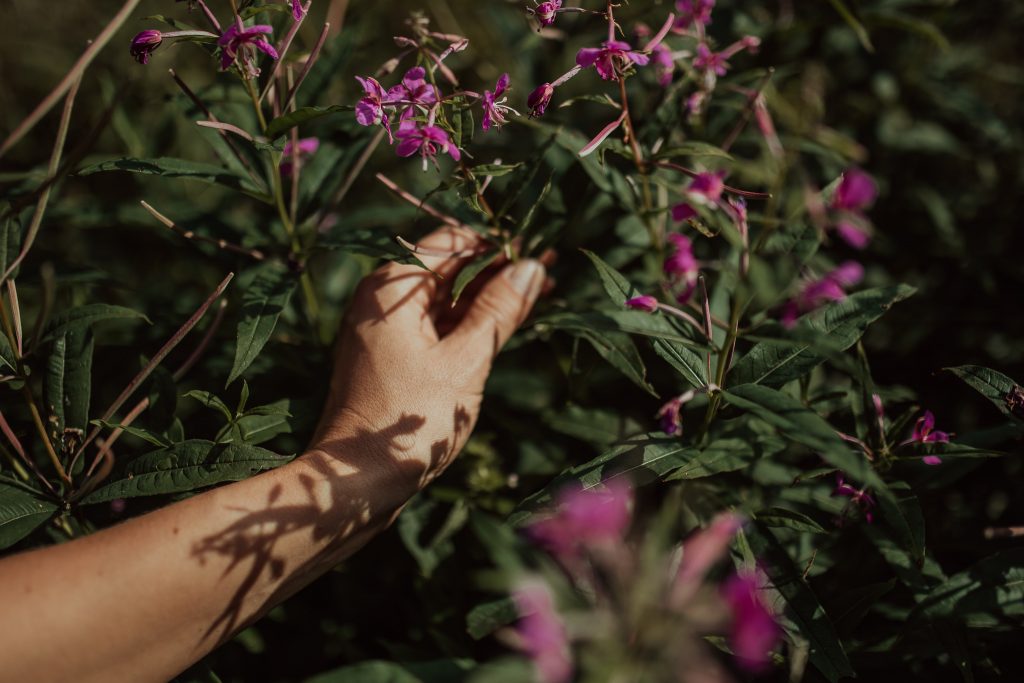
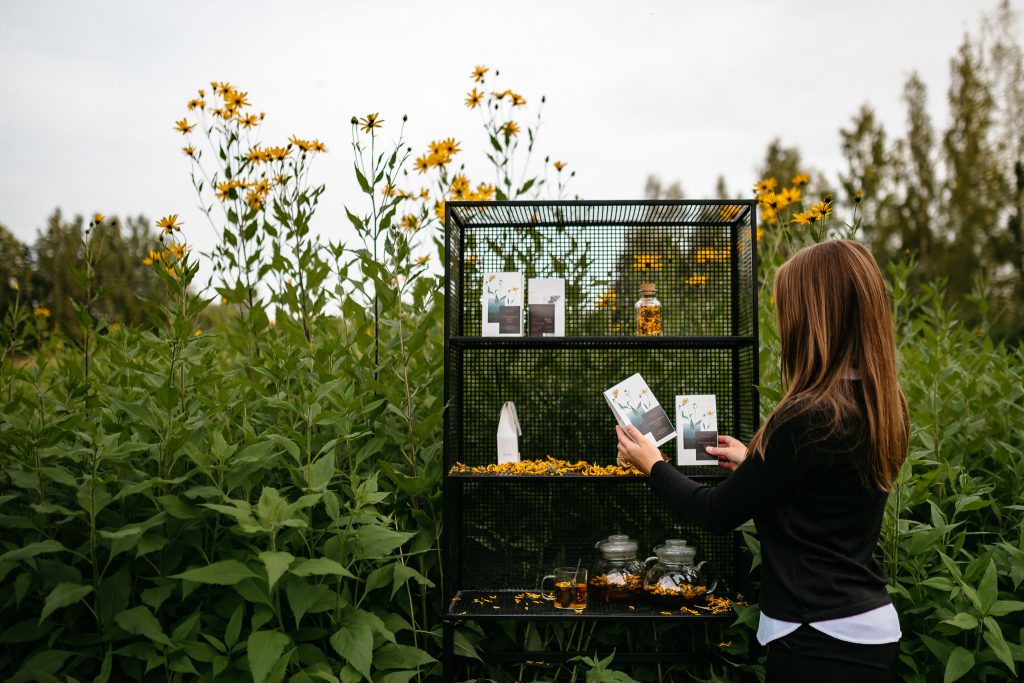
“People can react differently to herbs”, Māra explains. Therefore, the selection was narrowed to the most common, neutral, and safe for most people to consume. These herbs offer many health benefits. They improve metabolism, reduce headaches, reduce level of sugar, boosts energy levels and many more. From the selection of herbs, different recipes were developed.
“We collaborate with farmers who own the lands, all of them organically certified areas”. With this, Māra is offering an additional source of income to farmers in the local area, while making a healthy product that has no negative effects to the environment. Some of these farmers are women with fewer other income opportunities in the rural areas.
Journey
Māra was ending her degree at the BA School of Business and Finance, when it all started. “When I graduated from university, me and my mom were asked to represent young entrepreneurs of Latvia in China. By then, I have already noticed that I was very interested in becoming an entrepreneur myself”.
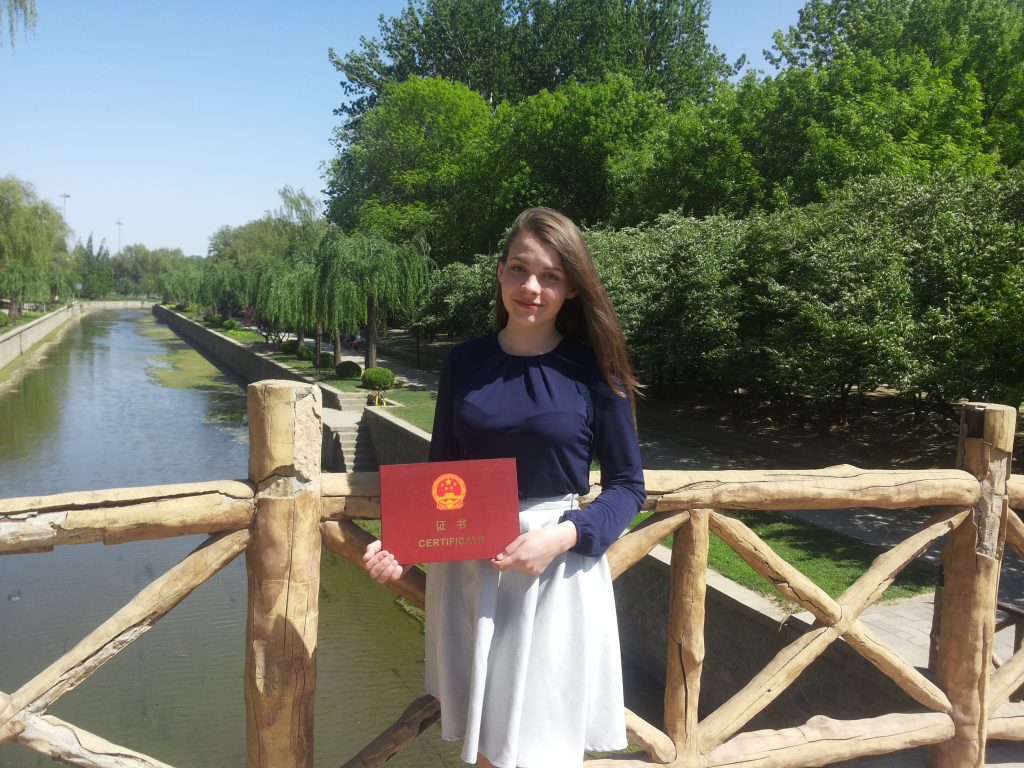
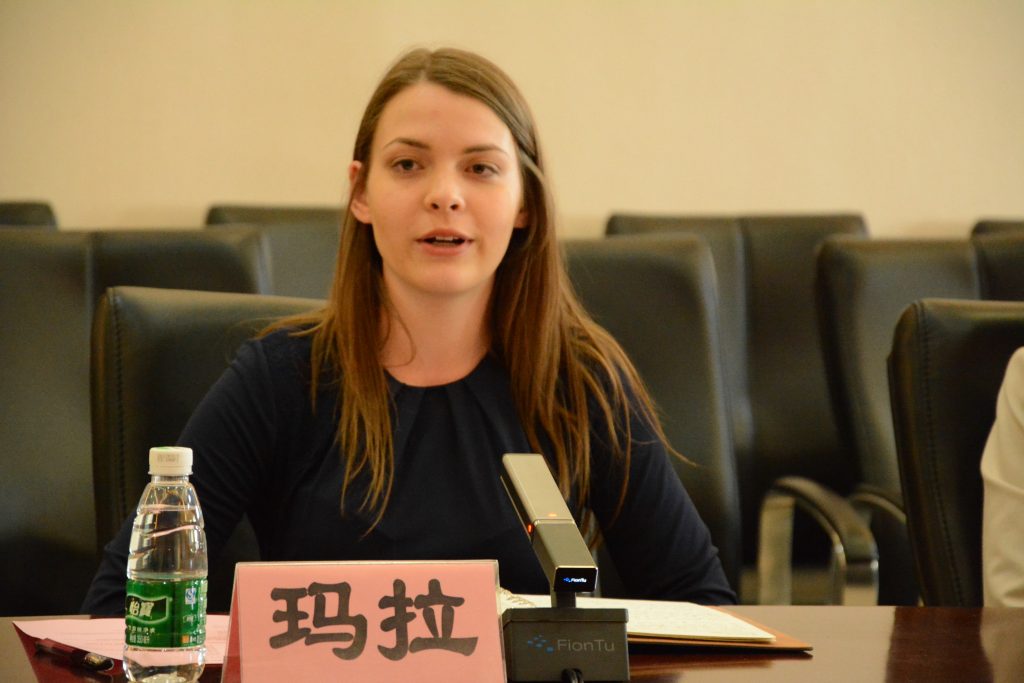
While in China, Māra got exposed to a rich tea culture, which made her think about the opportunities of using Latvia’s herbs to produce tea and expand the tea culture back home. In her words: “I noticed that Latvia has so many herbs, of which you can make tea from, that are not utilised”. At the same time, Māra was devoted to contributing to the development of the region she comes from. “I am very attached to my region and I wanted to produce something from our territory and to have a positive impact in the local area”.
Māra pitched her idea at several business accelerators and got support from her local community. Through the Ministry of Economics, the business accelerator in Madona organises events to support promising business ideas. It consists of a competition, where ideas are presented and then evaluated by an independent jury. “We attended the competition and were selected among 15 selected ideas”. This gave Māra access to a grant for a 4-year long period to develop her business idea. “The municipality and local investors are very interested in the success of this project” Māra tells.
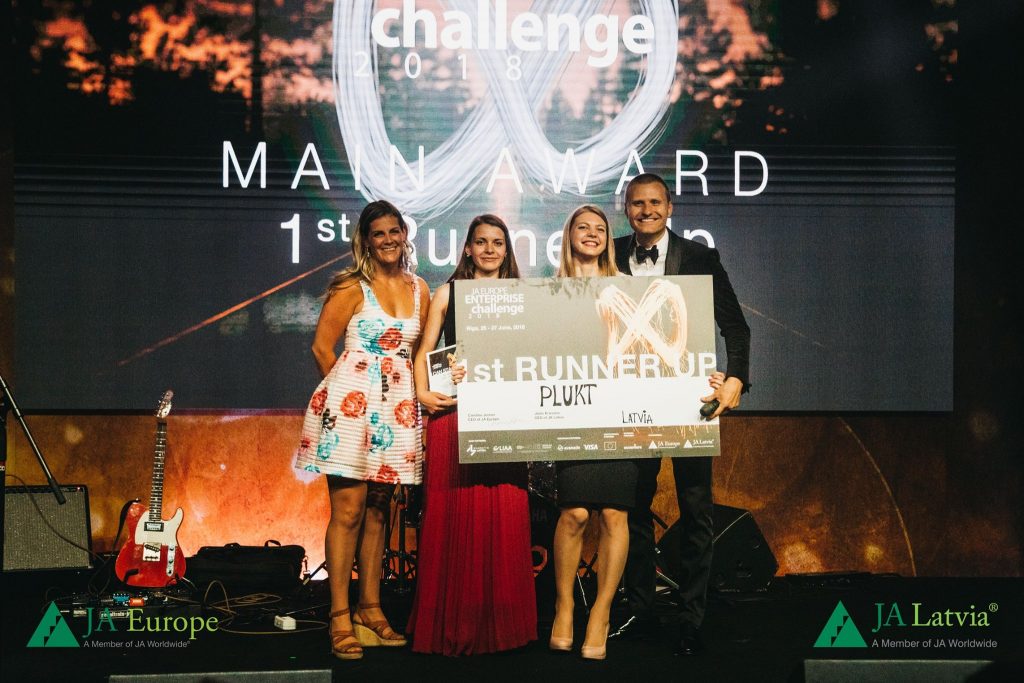
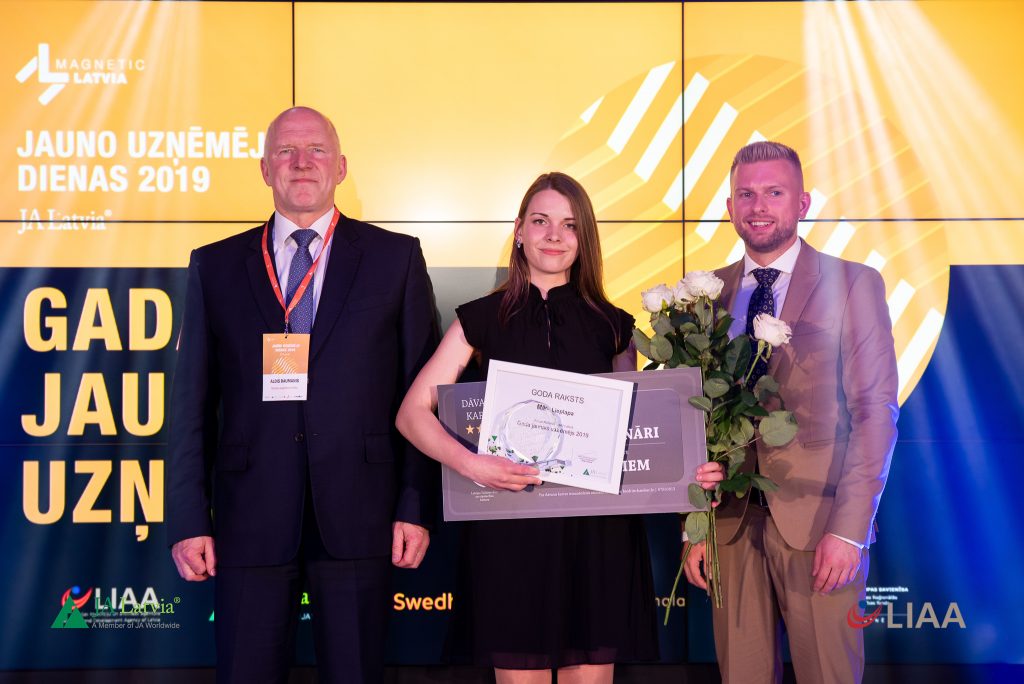
Māra started to contact local farmers and landowners, who would be interested in harvesting the herbs. “Local farmers were open-minded to collaborate in a project” Māra recalls with surprise. To many of them, this represents an attractive source of additional income.
In an old building bought for the factory, Māra and team came up with ingenious ways to dry the herbs using tunnels, where the wind goes through, and solar energy. They also adapted a machine for elaborating biodegradable teabags.
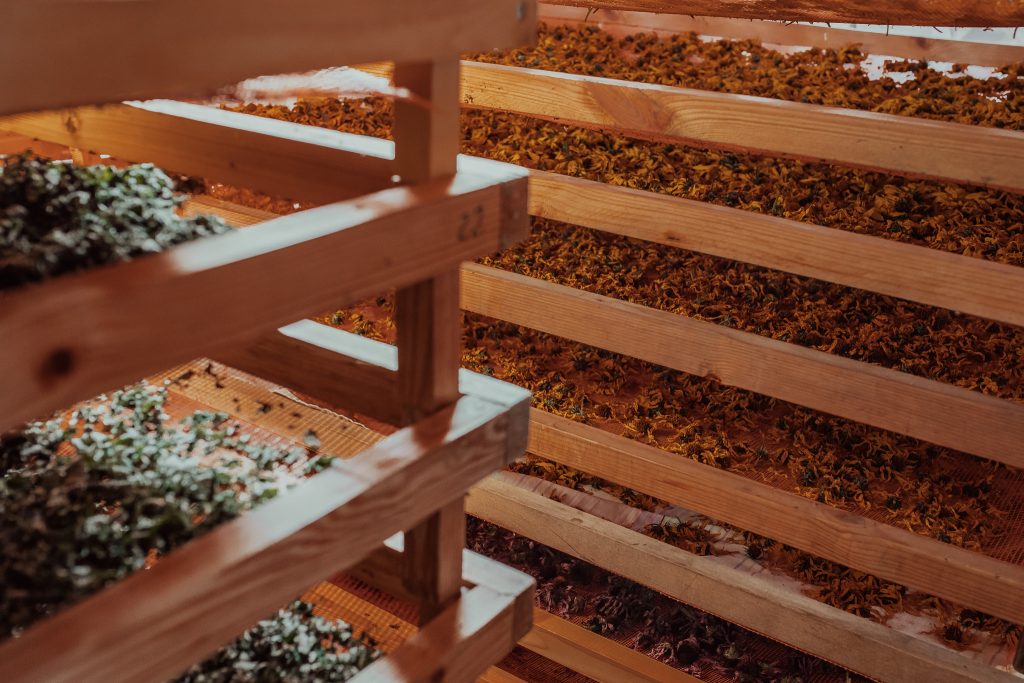
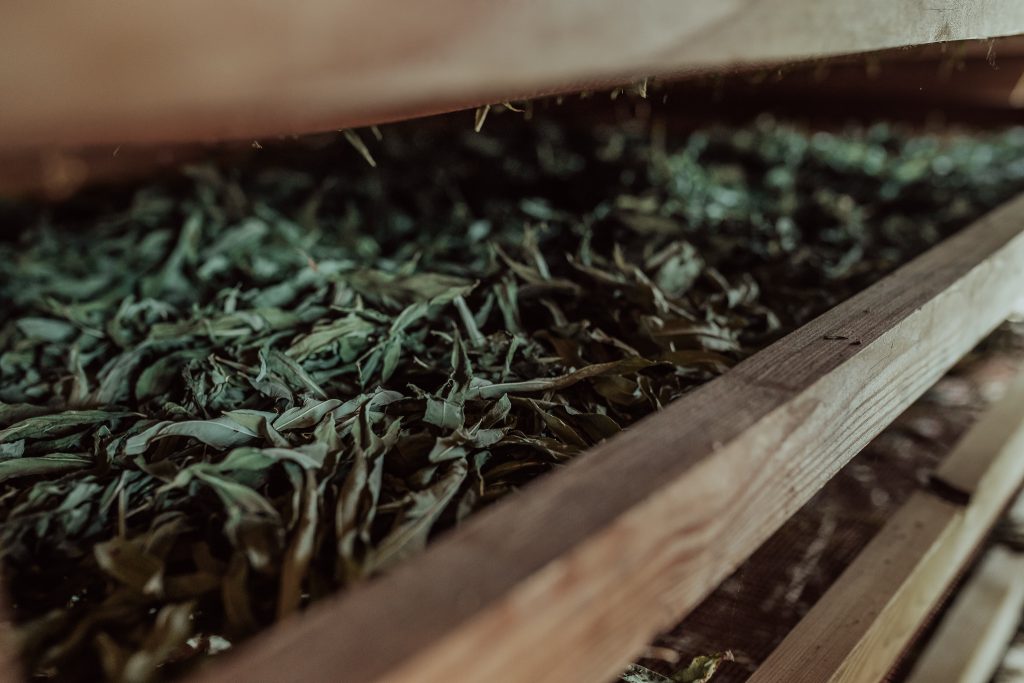
Today, PLŪKT sells in specialty stores in 13 countries. Māra recalls that the contacts made during her university studies were key in finding new markets. In her words: “During my studies I went to Sweden, Austria and China, so I made a lot of contacts – I have used their help to find stores and suppliers.”
Impact
“Sustainability is one of our core values”, Māra emphasizes. PLŪKT tea is organic, is not farmed, and landowners have all organic certificates. PLŪKT is also one of the first companies in Northern Europe to manufacture biodegradable teabags. The tea comes in a recycled carton boxes, which can be recycled again. And “we sell through zero-waste shops without packaging, where we encourage people to buy in bulk”.
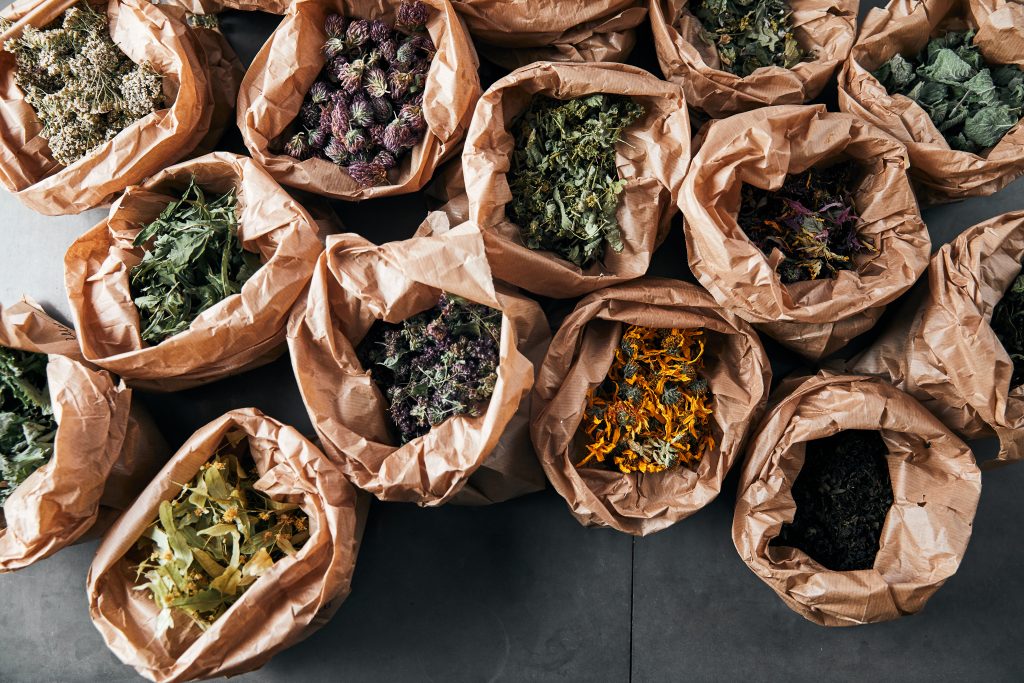
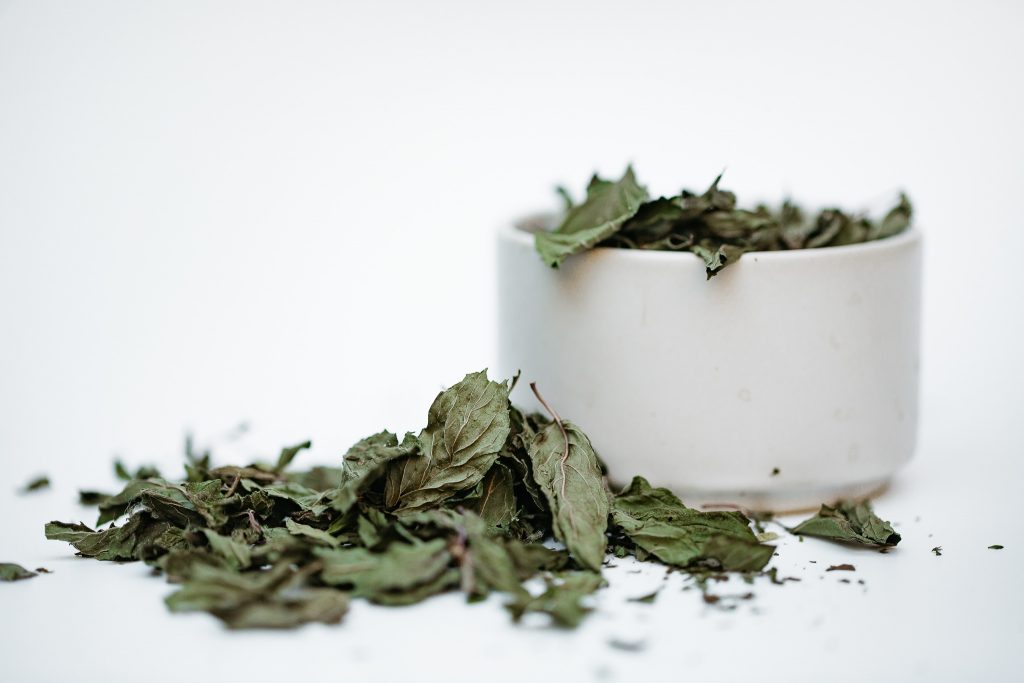
PLŪKT has also a strong social focus. Māra explains that “rural areas are lagging attention and opportunities for the local people”. Therefore, they support local farmers, mostly family own farms, or single women that need additional income. “Often they own a certified farm but are not using it, so collecting the herbs gives them an opportunity”. Farmers do not need much equipment, but PLŪKT provides them with bags, filters, aprons, and masks. According to Māra “most farmers are satisfied – it is very satisfying and empowering for many of them being part of something bigger, right here in their own area”.
Challenges
There are a number of challenges of starting a business, particularly as a young person and as a woman. “As a young person, it can be hard to reach older people in retail – they may not think you have enough experience”. Therefore, Māra had to work hard to prove herself trustworthy. Māra recognizes, however, that overcoming her own fears was the biggest challenge. “You cannot listen to all the ‘nos’ and cannot easily change people’s perceptions, so I have adapted my way of presenting myself to people”. After a while, Māra was successful in wining acceptance of suppliers and others in the business.
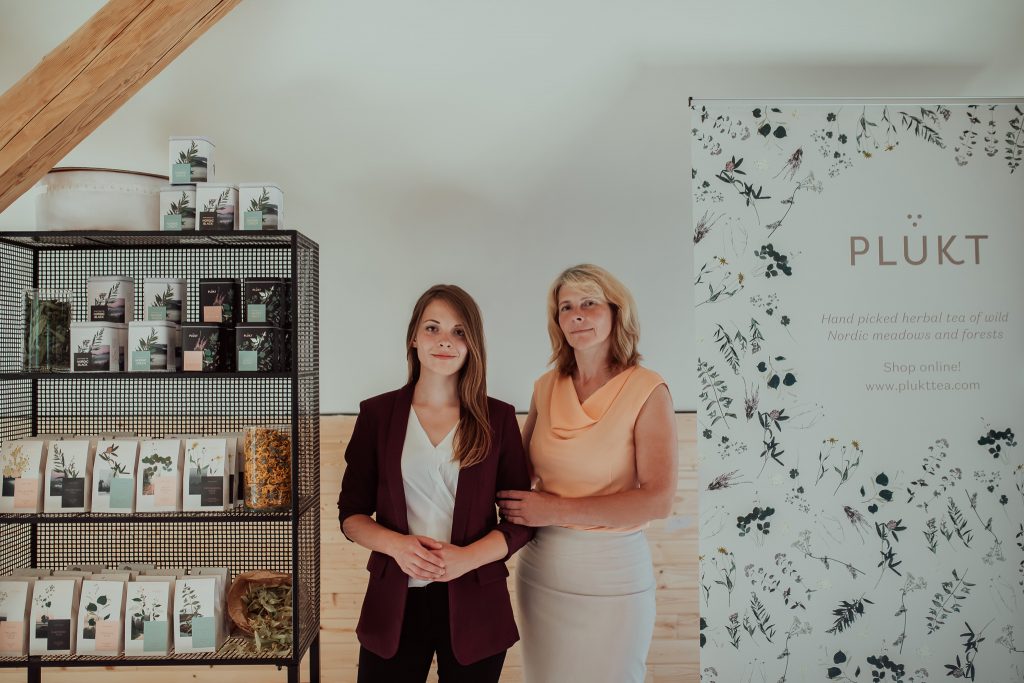
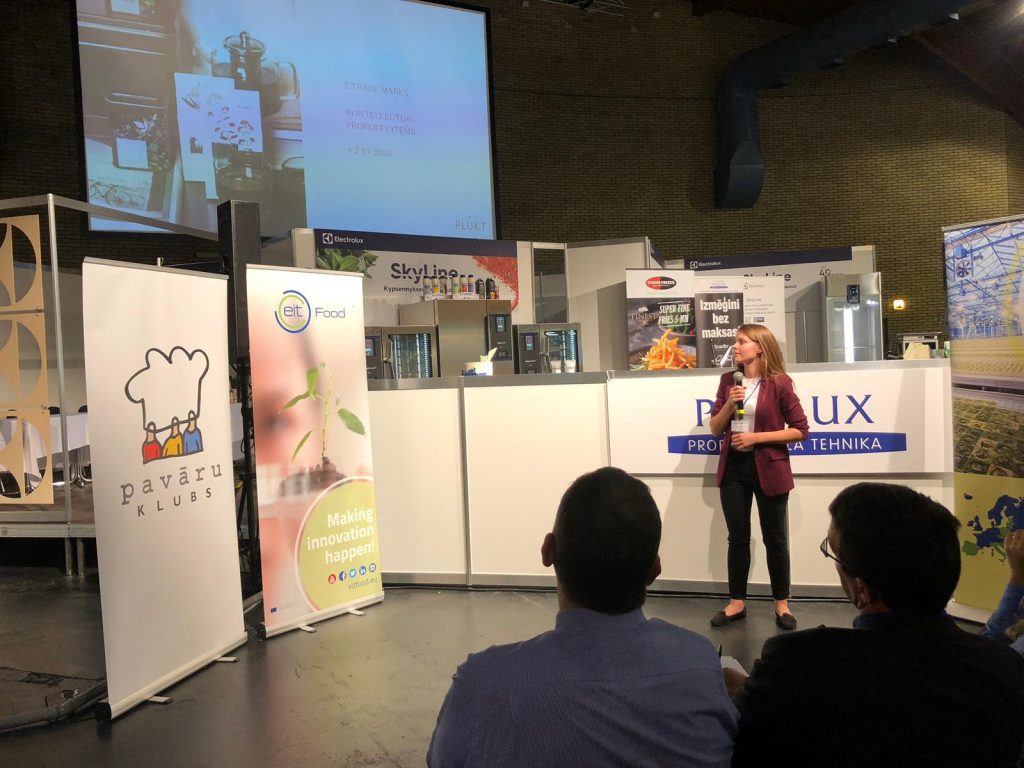
Another key challenge is winning the acceptance of the product in the market. So far is going well, but it fluctuates. “We had very fast growth, but after a while it was a bit low – it is hard to push certain products to the market – people were not ready for certain products”. Also, many clients opt for other brands based on price, even if they lack sustainable qualities.
Additionally, a challenge is that harvest is very seasonal, so PLŪKT cannot support farmers all year round. Māra explains that they work with up to 20 farmers during summer, and only 5 during the autumn season. Possibly this explains why more women than men are active, as there are less opportunities for them in rural areas.
Next steps
Up until today, Māra and team have mostly focused on manufacturing, but their long-term ambition is to generate a tea culture locally. “We want to focus on teaching”, and to do so, they are working on two fronts.
One focuses on consumers – “raising awareness of the health benefits and the whole experience around tea”. “Brewing tea can become a daily health ritual, a peaceful moment in the day, a time for yourself”. The second, focuses on professional tea masters, mostly from Asia. Māra aims at raising awareness of Latvia’s tea culture internationally by organising tea master cups.
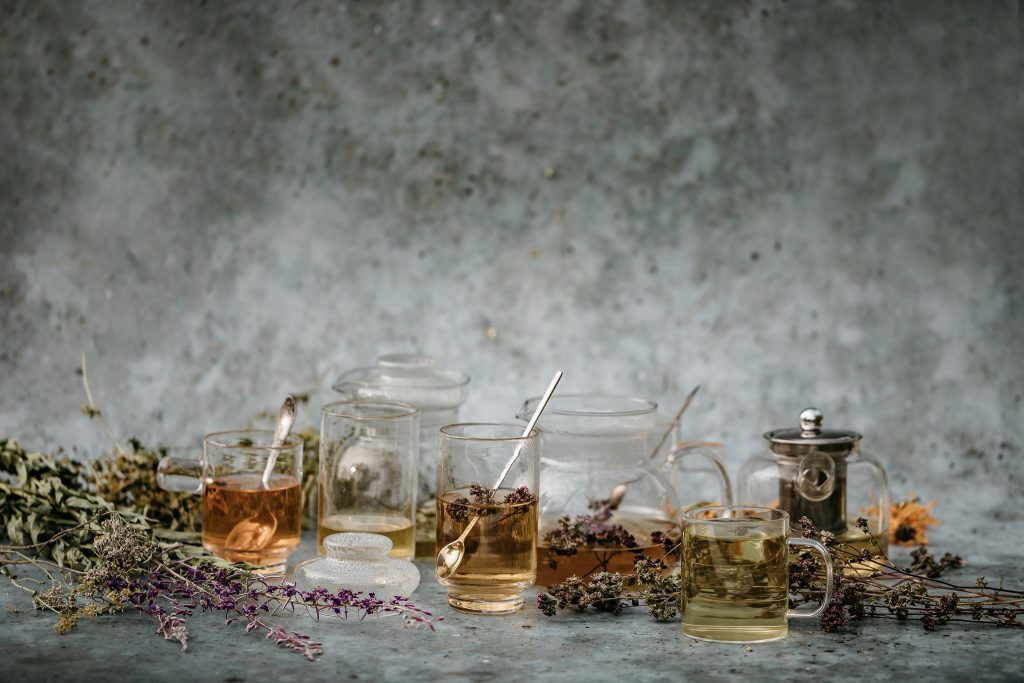
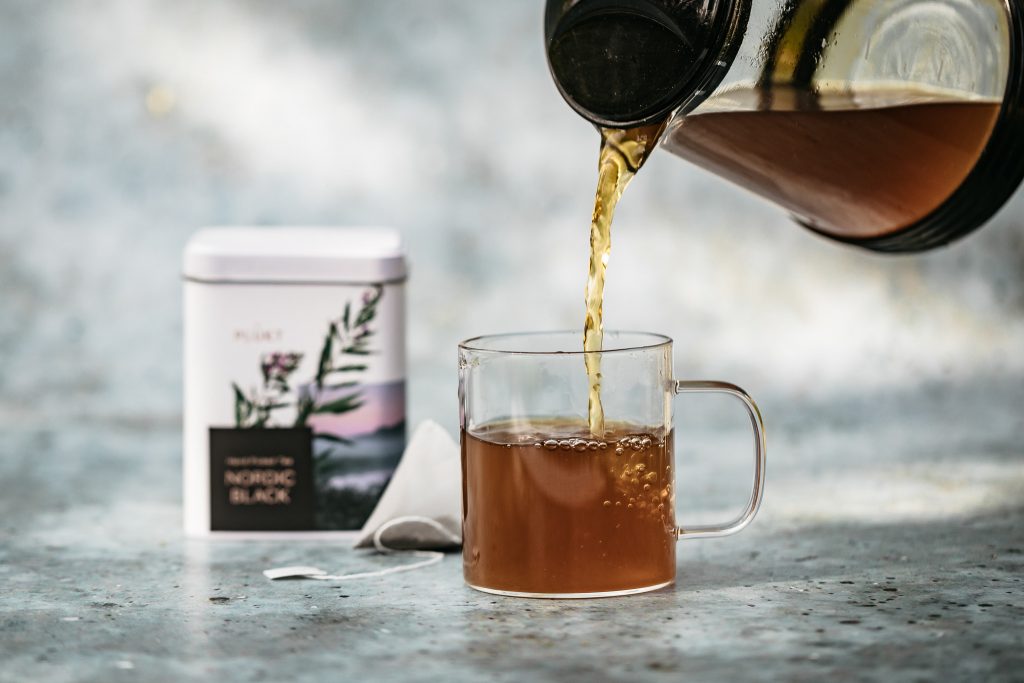
These are competitions for tea masters common in Southeast Asia, but not in Europe so far. With these events, the aim is also to introduce the tea culture and rituals from other countries into Latvia, and eventually, “share our own rituals in Asia”.
Photos: PLŪKT archive, taken by VOWfoto.
